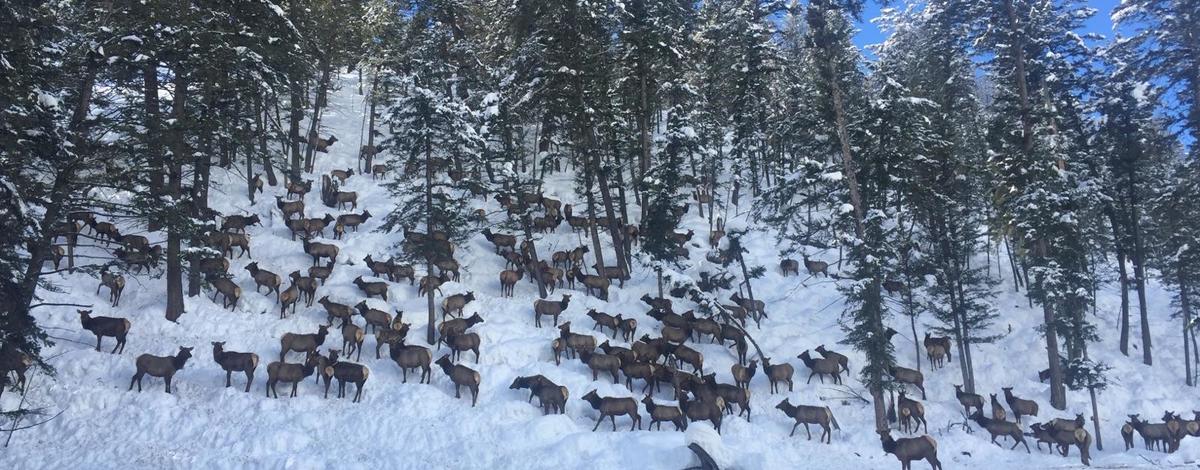History
Fish and Game's Upper Snake Region has significant history of winter feeding and has an active Winter Feeding Advisory Committee. The Henry Creek Fire burned over 50,000 acres in the summer of 2016, including over 30,000 acres of the Tex Creek Wildlife Management Area. Tex Creek WMA provides significant winter range for about 4000 elk and 4000 mule deer. The winter range on Tex Creek is critical for the maintenance of those herds and the hunting opportunity they provide across eastern Idaho and serves to keep the majority of those herds from depredating on nearby private agricultural ground. Shortly after the Henry Creek Fire, Fish and Game began preparing plans to mitigate the loss of critical winter range with a multi-tiered approach including; habitat restoration, expanded harvest opportunity, planting of lure crops and a large winter feeding program. Fish and Game staff consulted with the Upper Snake Winter Feeding Advisory Committee, private land owners surrounding the Tex Creek WMA and the hunting public when planning actions necessary to respond to the loss of critical winter range.
The loss of natural forage from the fire is not expected to cause significant nutritional based mortality to the elk herd, but will primarily impact elk behavior resulting in significant numbers of elk moving onto surrounding agriculture fields. Winter feeding of elk is primarily designed to keep elk on the feeding operations and reduce elk depredations on surrounding agricultural fields. Winter feeding of mule deer, if implemented, is intended to provide a nutritional substitute for lost natural forage and prevent significant losses to the herd. A short term reduction in the wintering mule deer within the fire scar might be a benefit to habitat recovery and the overall health of this segment of the mule deer population. Staff expects some level of mortality to the wintering deer population within the area impacted by the fire. Upper Snake regional staff bought and pre-positioned 2000 tons of dairy quality hay in September in preparation for feeding operations in the winter of 2016-17. Feeding commenced on December 4 and has continued uninterrupted since then. Three Fish and Game employees spend 100% of their time on the feeding operation.
January 9, 2017 status report
The Upper Snake Region Winter Feeding Advisory Committee has met three times this winter, twice in October and again December.
On a three occasions staff have worked to move elk off of adjacent private lands and back on to the WMA and the feeding location. These attempts have been largely successful with approximately 2,000 elk having been moved off of private lands and back onto public lands.
Daily feeding of approximately 3-4,000 elk at Tex Creek WMA. Staff has attempted to locate large concentrations of deer associated with the Tex Creek WMA, but to date have not been able to find significant groupings of deer. Deer appear to be widely scattered in small bunches and not on the feeding area.
Tex Creek is currently the only emergency feeding operation in the region but regional staff are monitoring snow conditions and animal behavior necessary to evaluate need. The Upper Snake region staff is currently working with at least 26 landowners where depredation is occurring. Most officers and biologists have each been assigned as the point person for one of the depredation issues.
Winter Conditions
Moderating temperatures and winds in early January has improved conditions for wintering big game by opening up some south facing slopes and ridges. However, recent rain on snow events have increased the chance of crusting snow which increases the energy requirements needed for animal movements. Snow depth and crusting will continue to be monitored frequently throughout the winter.

